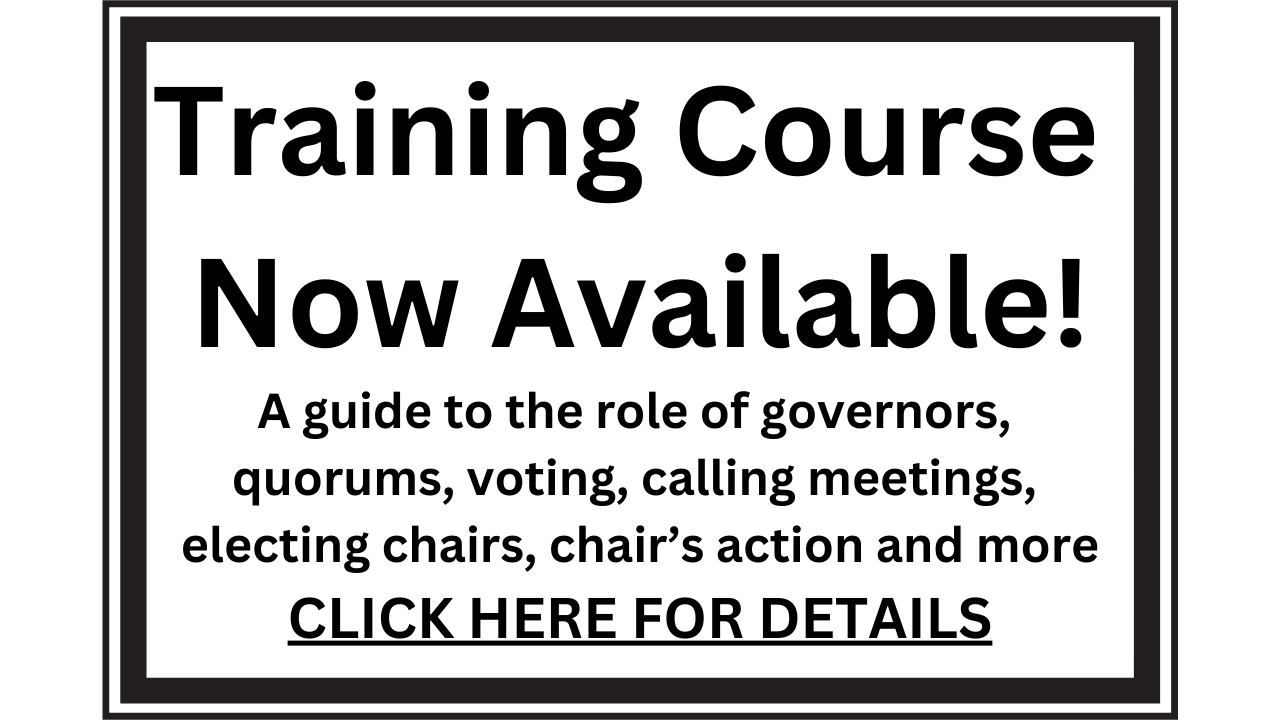A casting vote is used to break the deadlock if a vote is tied, giving one governor or trustee the right to vote twice.
In maintained schools the governor who is chairing the meeting has a casting vote, whether they are the actual chair of governors or acting as chair for one meeting only.

The rule on casting votes at full governing body meetings comes from section 14 of the Roles, Procedures and Allowances (England) Regulations 2013, quoted below.
“Where there is an equal division of votes the chair, or as the case may be, the person who is acting as chair for the purposes of the meeting (provided that such person is a governor), will have a second or casting vote.”
Roles, Procedures and Allowances (England) 2013
Section 26 of the same law confirms that casting votes are also available at committees to “the person acting as chair for the purposes of the meeting, provided that such person is a governor”.
Maintained schools should note that governor panels that consider some staffing matters have no casting vote for chair and these are explained below. Casting votes in maintained schools can also only be used by governors, not associate members.
In academies the trustee chairing a meeting of trustees has a casting vote, whether they are the actual chair of trustees or acting as chair for one meeting.
“Where there is an equal division of votes, the chair of the meeting shall have a casting vote.”
Model Articles of Association (June 2021)
Exceptions For Some Panels
Maintained schools should be aware that when they set up panels to consider a number of staffing functions the chair of that panel has no casting vote.
A casting vote is not available at any panel that is considering:
- the appointment of school staff
- grievances
- the conduct and discipline of staff
- capability of staff
- the suspension or dismissal of staff.
(I have called these groups “panels” rather than committees because schools tend to refer to groups of governors involved in these staffing functions as panels.)
“This part does not apply to any committee established by the governing body to exercise functions relating to the appointment, grievance, conduct and discipline, capability, suspension or dismissal of individual members of the school staff.”
Roles, Procedures and Allowances (England) 2013
Best Practice For Casting Votes
In practice chairs may wish to avoid using their casting vote. Many decisions of governing bodies are taken unanimously or with a clear majority and a decision that splits the board down the middle may need further discussion and exploration.
North Yorkshire Governor Services advise that the chair should try to avoid changing the status quo with a casting vote because it would mean the change did not have the support of enough governors.
“Legally this vote can be cast at the total discretion of the chair but there are conventions that if a board is equally divided, the chair should not change the existing position. This is because there are insufficient members who positively want change.
“To carry through changes requires a united front with a commitment to the change and its implementation. The proposal may then be debated again when there is a fuller attendance or after members have had time to consider the matter further.
“This view has much to commend it. A half supported and perhaps hasty change could lead to divisions and recriminations if the matter subsequently goes awry.”
North Yorkshire Governor Services
Can associate members have a casting vote?
No. The law for maintained schools only allows governors to use a casting vote. Associate members are not governors and are not listed on a school’s instrument of government.
Associate members can never vote at meetings of the full governing body but they can be granted votes on committees and are also allowed to chair committees.
“Where there is an equal division of votes the chair, or as the case may be, the person who is acting as chair for the purposes of the meeting (provided that such person is a governor), will have a second or casting vote.”
Roles, Procedures and Allowances (England) 2013
If a vote was tied at a committee meeting and the chair was an associate member you would need to either continue the discussion until a committee member changed their vote or postpone the decision to the next committee meeting. You could also refer the decision to a full governing body meeting instead.
Some academies may also use the term “associate member” for someone who is a committee member but not a trustee. The rights of these people will be dictated by your own articles of association.
Does the chair of an academy members’ meeting have a casting vote?
No. The model articles of association (June 2021) do not give the chair of a members’ meeting a casting vote, only the chair of a trustees’ meeting.
(Academy members should not be confused with associate members. Academy members are the small group of people who are equivalent to company shareholders and attend the annual general meeting but do not take part in most governance duties.)
Does the chair of a local governing body have a casting vote?
The rules for each local governing body in a multi-academy trust are set by the trust itself, so check the terms of reference for that LGB to see whether a casting vote is available.
